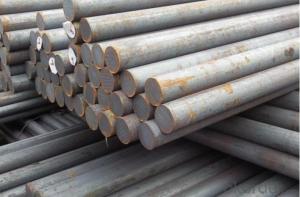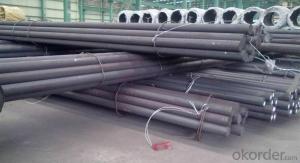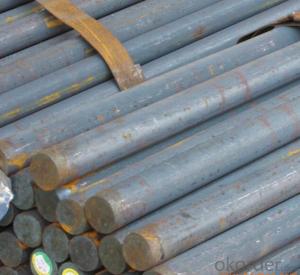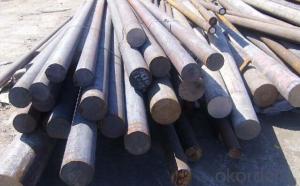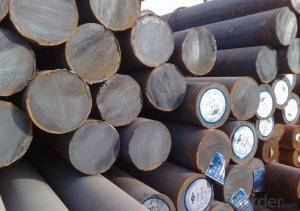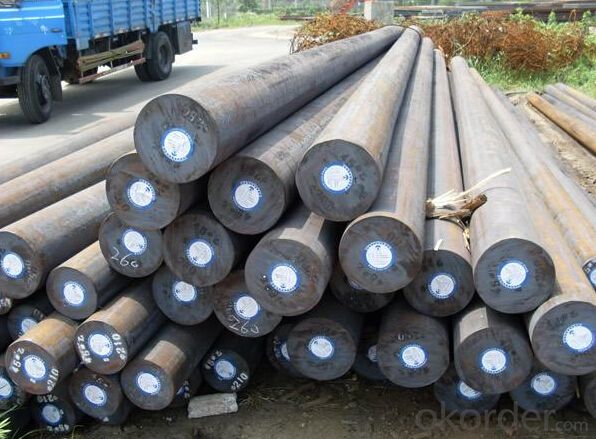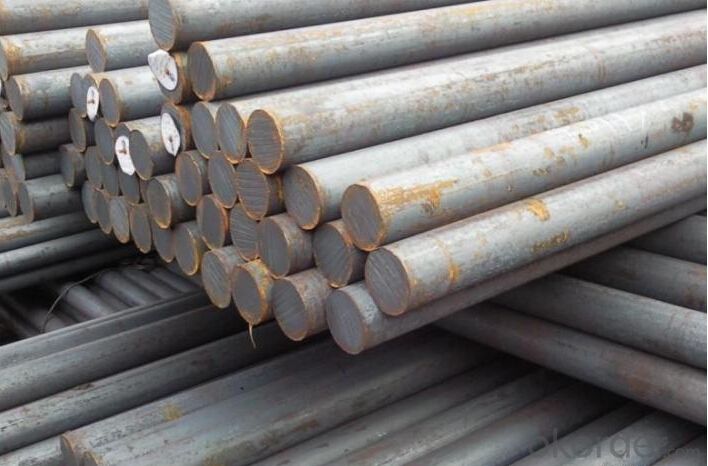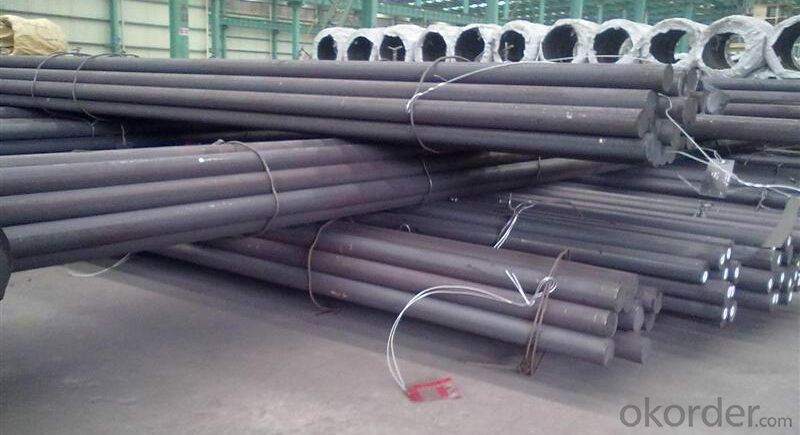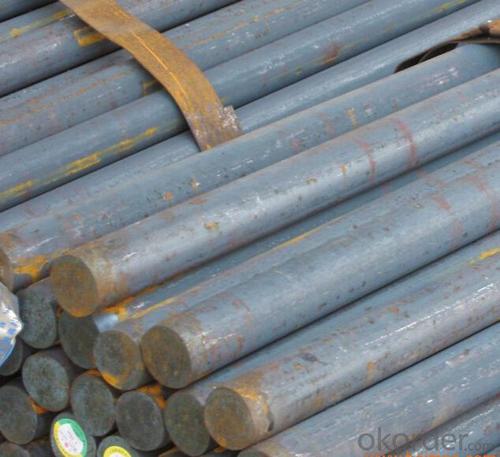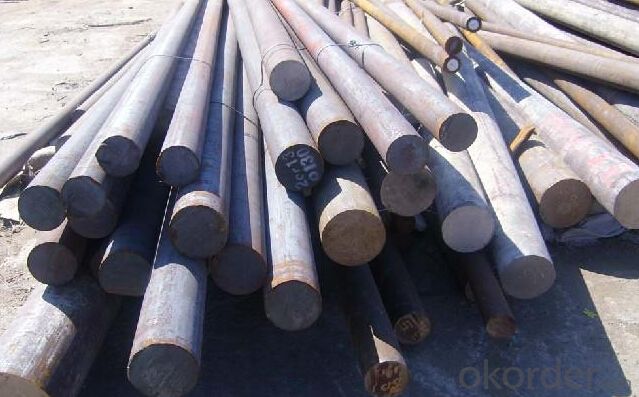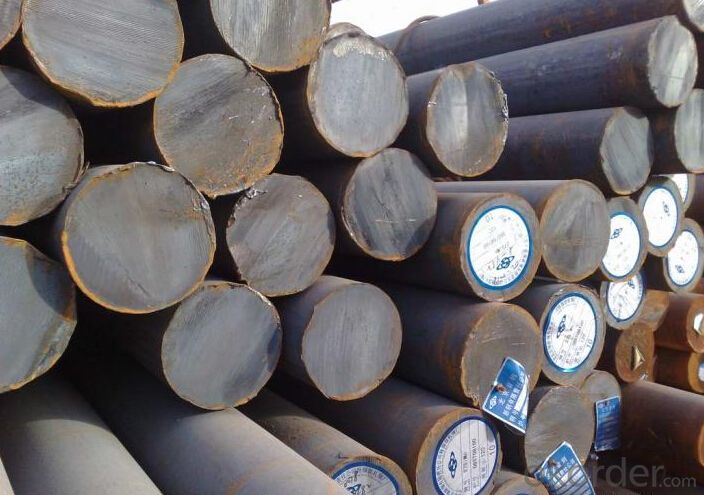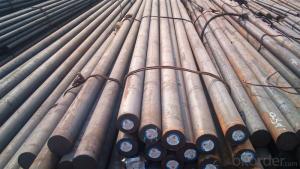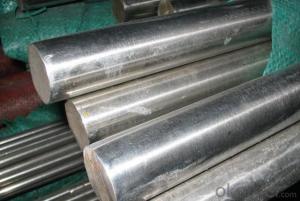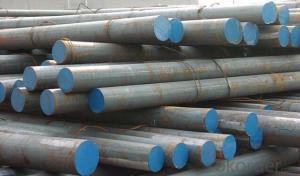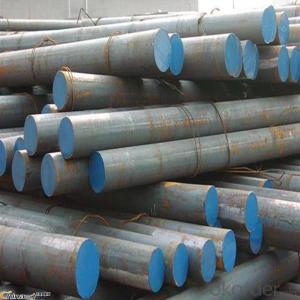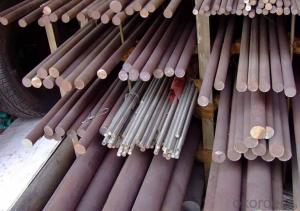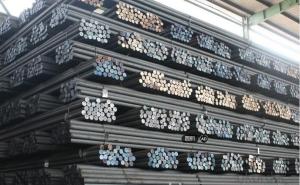Grade SAE 4140 Steel Price_Steel Round Bar Dimension
- Loading Port:
- Shanghai
- Payment Terms:
- TT OR LC
- Min Order Qty:
- 3 m.t.
- Supply Capability:
- 10000 m.t./month
OKorder Service Pledge
OKorder Financial Service
You Might Also Like
Specification
Grade SAE 4140 Steel Price_Steel Round Bar Dimension
Details of Grade SAE 4140 Steel Price_Steel Round Bar Dimension
Name | Steel Round Bar |
Shape | Round Bar/Square Bar/Flat Bar/Plate/Wire |
Standard | GB/ASTM/SAE/AISI/DIN/JIS/EN/BS |
Surface Treatment: | Black/Peeling/Polished/Machined |
Delivery Condition: | Hot Rolled or Forged/Peeled or Black Surface |
Test | SGS/UT 100% Elements Testing |
Certificate: | ISO/Mill Certificate |
Service: | 24 hours online service / |
more than 20 years trading and manufacture | |
Quality Assurance: | the third party inspection, such as SGS, BV, TUV…etc. is acceptable |
Packaging Details: | Seaworthy Packaging or as per customer's packing instruction |
Specification of SAE 4140 Steel Price_Steel Round Bar Dimension
1.Size of 4140 Steel Round Bar | ||||||||
Round bar | Diameter(mm) | Length (mm) | ||||||
20~800 | 3000~9000 | |||||||
Plate | Thickness(mm) | Width (mm) | Length (mm) | |||||
Max:800 | Max:2200 | Max:9000 | ||||||
The specification can be customized. | ||||||||
2.Chemical Compositons | ||||||||
Grade | C | Si | Mn | P | S | Cr | Mo | Ni |
42CrMo | 0.38~0.45 | 0.17~0.37 | 0.50~0.8 | ≤0.035 | ≤0.035 | 0.9~1.2 | 0.15-0.25 | ≤0.3 |
4140 | 0.40~0.45 | 0.15~0.35 | 0.75~1.0 | ≤0.035 | ≤0.040 | 0.8~1.1 | 0.15-0.25 | - |
SCM44 | 0.38~0.43 | 0.15~0.35 | 0.60~0.9 | ≤0.030 | ≤0.030 | 0.9~1.2 | 0.15-0.30 | ≤0.25 |
1.7225 | 0.38~0.45 | ≤0.40 | 0.60~0.9 | ≤0.025 | ≤0.035 | 0.9~1.2 | 0.15-0.30 |
|
3.Features of 4140 alloy steel | ||||||||
1. Chromium molybdenum alloy steel | ||||||||
2. Slightly higher carbon content then 4130 | ||||||||
3. Greater strength and heat treatment | ||||||||
4.Typical Applications | ||||||||
1. Applications in the oil and gas sector | ||||||||
2. Connection rods, collets, conveyor pins, | ||||||||
3. Gears, stem assemblies, | ||||||||
4. Pump shafts and tool holders | ||||||||
CNBM Introduction of SAE 4140 Steel Price_Steel Round Bar Dimension Supplier
CNBM International Corporation is the most import and export platform of CNBM group(China National Building Material Group Corporation) ,which is a state-owned enterprise, ranked in 270th of Fortune Global 500 in 2015.
With its advantages, CNBM International are mainly concentrate on Cement, Glass, Iron and Steel, Ceramics industries and devotes herself for supplying high quality series of refractories as well as technical consultancies and logistics solution.
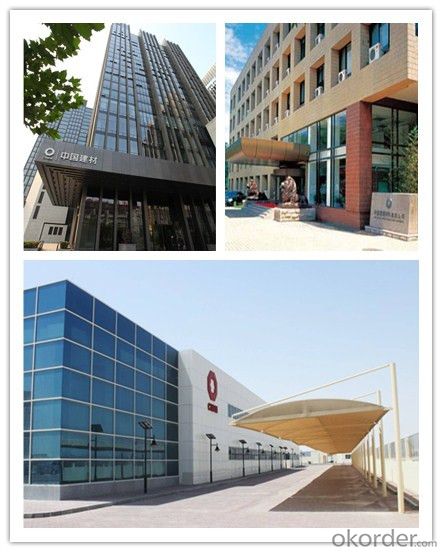
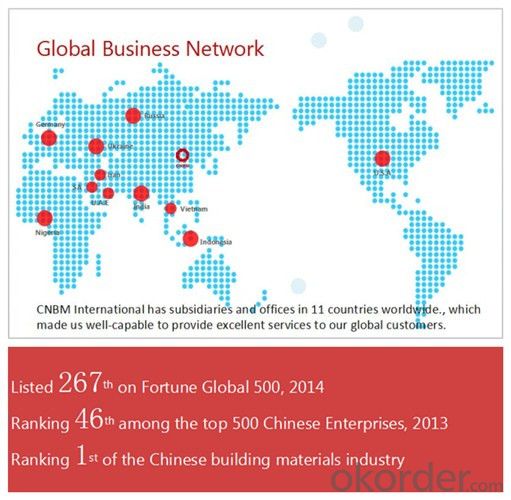
After-sale service |
|
Advantages
|
|
Packaging & Delivery SAE 4140 Steel Price_Steel Round Bar Dimension
Packaging Detail | Sea worthy packing /as per customer's packing instruction |
Delivery Detail | 15 ~ 40 days after receiving the deposit |
Products Show
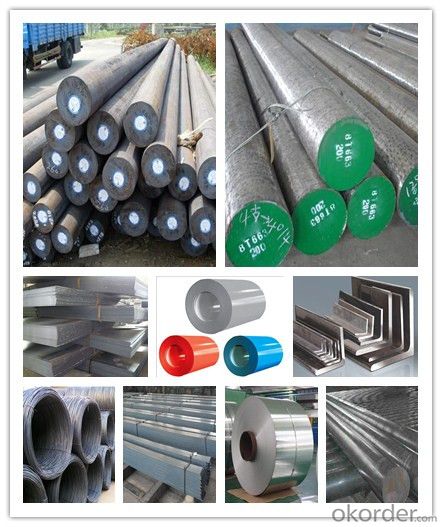
FAQ:
Are you a trading company or manufacturer? | Manufacturer |
What’s the MOQ? | 3 metric ton |
What’s your delivery time? | 15-35 days after downpayment received |
Do you Accept OEM service? | Yes |
what’s your delivery terms? | FOB/CFR/CIF |
What's the Payment Terms? | 30% as deposit,70% before shipment by T/T |
Western Union acceptable for small amount. | |
L/C acceptable for large amount. | |
Scrow ,Paybal,Alipay are also ok | |
Why choose us? | Chose happens because of quality, then price, We can give you both. Additionally, we can also offer professional products inquiry, products knowledge train (for agents), smooth goods delivery, excellent customer solution proposals. |
What's your available port of Shipment? | Main Port, China |
What’s your featured services? | Our service formula: good quality+ good price+ good service=customer's trust
|
Where are your Market? | Covering more than 160 countries in the world |
- Q: Can special steel be used in the oil and gas industry?
- Yes, special steel can be used in the oil and gas industry. Special steel alloys such as stainless steel, duplex steel, and super duplex steel are widely utilized in various applications within the industry due to their exceptional corrosion resistance, high strength, and heat resistance properties. These specialized steels provide increased durability and performance in harsh environments, ensuring the safe and efficient operation of oil and gas equipment and infrastructure.
- Q: What are the limitations of using special steel?
- There are several limitations to using special steel. Firstly, it is generally more expensive compared to regular steel, making it less economical for certain applications. Additionally, special steel typically requires specific production techniques and expertise, which may limit its availability and accessibility. Furthermore, special steel might not possess the same level of corrosion resistance as other materials, which can be a disadvantage in certain environments. Finally, the properties and characteristics of special steel may be tailored for specific purposes, which means it may not be suitable for all applications.
- Q: How is special steel used in the construction supply chain?
- Special steel is used in the construction supply chain for various purposes. It is commonly used in the manufacturing of structural components, such as beams, columns, and reinforcement bars, due to its high strength and durability. Special steel is also utilized in the production of specialized tools and equipment used in construction, such as cranes, excavators, and drilling rigs. Furthermore, it plays a crucial role in the fabrication of pre-engineered buildings and modular construction systems. Overall, the use of special steel in the construction supply chain allows for the development of robust and efficient structures, enhancing the overall safety and longevity of construction projects.
- Q: How does aluminum contribute to the properties of special steel?
- Special steel commonly incorporates aluminum as an alloying element to bolster its properties. The addition of aluminum yields multiple enhancements. Firstly, the inclusion of aluminum elevates the strength of the steel by creating a fine dispersion of aluminum nitride particles within the steel matrix. These particles act as barriers that impede dislocation movement, hindering steel deformation and amplifying its strength. Consequently, the steel becomes more resistant to mechanical stresses, thereby augmenting its load-bearing capacity. Secondly, aluminum also boosts the steel's corrosion resistance. It forms a protective oxide layer on the steel's surface, acting as a barrier against corrosive agents. This oxide layer prevents the steel from oxidizing, rusting, and deteriorating over time, thereby rendering it more durable and long-lasting in various environments. Moreover, aluminum can enhance the machinability of special steel. Its presence in the steel composition reduces the steel's tendency to work harden during machining operations. Consequently, cutting, drilling, or shaping the steel becomes easier, resulting in improved productivity and reduced tool wear. Furthermore, aluminum contributes to the heat resistance of special steel. With its high melting point and excellent thermal conductivity, aluminum aids in maintaining the steel's structural integrity at elevated temperatures. This renders aluminum-steel alloys suitable for applications demanding high-temperature resistance, such as those in the aerospace and automotive industries. In conclusion, aluminum plays a significant role in enhancing the properties of special steel. It bolsters strength, corrosion resistance, machinability, and heat resistance, making it a versatile material applicable in various fields.
- Q: What are the challenges in heat treatment of special steel alloys?
- The heat treatment of special steel alloys presents various difficulties due to their unique composition and properties. One of the primary obstacles is attaining the desired microstructure and mechanical properties while maintaining dimensional stability. Special steel alloys often contain intricate alloying elements and necessitate specific heat treatment processes to achieve the desired properties. Another hurdle involves controlling the rates of heating and cooling throughout the heat treatment procedure. Special steel alloys are often sensitive to rapid or uneven temperature changes, which can lead to distortion, cracking, or the formation of undesirable phases. Hence, ensuring precise control of the heating and cooling rates is crucial to avoid these issues and ensure uniformity in the final product. Furthermore, the presence of alloying elements in special steel alloys can increase their hardenability, making it challenging to achieve the desired hardness consistently across the entire component. Adequate attention must be given to selecting appropriate heat treatment parameters, including temperatures, soaking times, and quenching media, in order to achieve the desired hardness and prevent excessive hardness gradients. Additionally, special steel alloys are prone to oxidation and decarburization during heat treatment due to their high alloy content and exposure to elevated temperatures. These reactions can result in surface defects and a decrease in carbon content, thereby impacting the final properties of the alloy. Consequently, careful control of protective atmospheres or heat treatment environments is necessary to prevent such issues. Moreover, the size and shape of components made from special steel alloys can pose challenges during heat treatment. Large or intricately shaped components require careful consideration of heating and cooling methods to ensure uniformity in microstructure and properties throughout the entire component. This may involve the use of specialized furnaces, fixtures, or heat treatment cycles to overcome these challenges. In conclusion, the challenges involved in heat treating special steel alloys encompass achieving the desired microstructure and mechanical properties, controlling heating and cooling rates, managing hardenability, preventing oxidation and decarburization, and addressing the size and shape of components. Overcoming these challenges demands a comprehensive understanding of the alloy's composition, properties, and the application of appropriate heat treatment techniques.
- Q: What are the different surface cleaning methods for special steel?
- Maintaining the quality and appearance of special steel requires the use of various surface cleaning methods. Here are some options: 1. To remove dirt, rust, or other contaminants from the steel surface, mechanical cleaning utilizes tools like wire brushes, sandpaper, or abrasive pads. This method effectively eliminates loose particles and light stains. However, it may not be suitable for stubborn dirt or deep stains. 2. Chemical cleaning is a commonly employed technique for special steel surfaces. It involves applying specific chemical solutions to dissolve and eliminate contaminants. The choice of chemicals depends on the type of dirt or stain. Acid-based cleaners work well for rust removal, while alkaline cleaners are effective against grease or oil stains. 3. Electrochemical cleaning employs an electrical current to eradicate contaminants from the steel surface. This method requires submerging the steel in an electrolyte solution and applying a direct current. As a result, the contaminants dissolve and separate from the surface. It is crucial to monitor this method closely to avoid any damage to the steel. 4. High-pressure water cleaning, also known as water blasting, removes dirt, paint, or other contaminants from the steel surface by using pressurized water. This method is particularly effective for heavy stains or coatings and is commonly used in industrial cleaning processes. 5. Steam cleaning is a gentle technique that uses high-temperature steam to loosen and eliminate dirt, grease, or other contaminants from the steel surface. It is a non-abrasive method that can effectively clean delicate or sensitive surfaces without causing any damage. It is important to consider the specific type of steel, the nature of the contaminants, and the desired level of cleaning when selecting the appropriate surface cleaning method. Consulting experts or following manufacturer guidelines is recommended to ensure the best cleaning method for a particular type of special steel.
- Q: How is nitriding steel used in surface hardening processes?
- Nitriding steel is used in surface hardening processes by introducing nitrogen into the surface layer of the steel through a controlled heat treatment. This process enhances the hardness, wear resistance, and fatigue strength of the steel, making it more durable and suitable for applications that require high surface hardness and improved performance.
- Q: Can special steel be used in the rubber manufacturing industry?
- Yes, special steel can be used in the rubber manufacturing industry. Special steel is often used to create molds, tools, and equipment that are used in the production of rubber products. It is valued for its strength, durability, and resistance to wear and tear, making it suitable for various applications in the rubber manufacturing process.
- Q: What are the requirements for special steel used in marine applications?
- In order to ensure durability and performance in harsh marine environments, special steel used in marine applications must satisfy various specific criteria. These criteria encompass the following: 1. Corrosion resistance: To prevent degradation and maintain its structural integrity over time, special steel utilized in marine applications must possess a high resistance to corrosion, as it is exposed to saltwater in marine environments. 2. Strength and toughness: Steel employed in marine applications must exhibit adequate strength and toughness to withstand the dynamic forces and impacts encountered at sea. It must be capable of enduring heavy loads, extreme temperatures, and the impact of waves or collisions. 3. Weldability: Optimal weldability is a requirement for special steel used in marine applications, as it facilitates the construction and repair of marine structures. This characteristic ensures that the steel can be effortlessly joined without compromising its structural integrity. 4. Fatigue resistance: Special steel employed in marine applications must possess exceptional fatigue resistance to withstand the constant cyclic loading associated with wave motions, currents, and operational conditions. Failure to address this requirement can result in fatigue failure. 5. Low-temperature toughness: Due to the involvement of marine applications in cold climates or icy waters, special steel used in these scenarios must maintain its toughness and ductility even at low temperatures. This characteristic is pivotal in preventing brittle fracture and ensuring safety. 6. Fire resistance: High fire resistance is of utmost importance in marine applications. Therefore, special steel utilized in marine structures should possess a high level of fire resistance to prevent structural collapse and restrict the spread of fire. 7. Easy maintenance: Ongoing exposure to harsh environmental conditions necessitates that special steel used in marine applications be easy to maintain and repair. This ensures prolonged performance and minimizes downtime. To fulfill these requirements, special steel for marine applications frequently undergoes alloying with specific elements such as chromium, nickel, and molybdenum. This enhances corrosion resistance, strength, and toughness. Furthermore, advanced manufacturing processes and quality control measures are implemented to guarantee the highest standards of quality and performance in marine applications.
- Q: What is the purpose of cold drawing in special steel production?
- Cold drawing is utilized in special steel production with the aim of enhancing the mechanical properties and dimensional accuracy of the steel. This technique involves pulling the steel through a die at room temperature, which leads to a reduction in the cross-sectional area and an increase in the length of the steel. By undergoing this process, the microstructure of the steel is refined, resulting in improved strength, hardness, and toughness. Furthermore, cold drawing has the ability to improve the surface finish and straightness of the steel, ensuring precise dimensions and making it suitable for a wide range of applications that require high-quality steel. In summary, cold drawing plays a vital role in improving the performance and quality of special steel, making it more dependable and efficient in various industrial sectors.
Send your message to us
Grade SAE 4140 Steel Price_Steel Round Bar Dimension
- Loading Port:
- Shanghai
- Payment Terms:
- TT OR LC
- Min Order Qty:
- 3 m.t.
- Supply Capability:
- 10000 m.t./month
OKorder Service Pledge
OKorder Financial Service
Similar products
Hot products
Hot Searches
Related keywords

